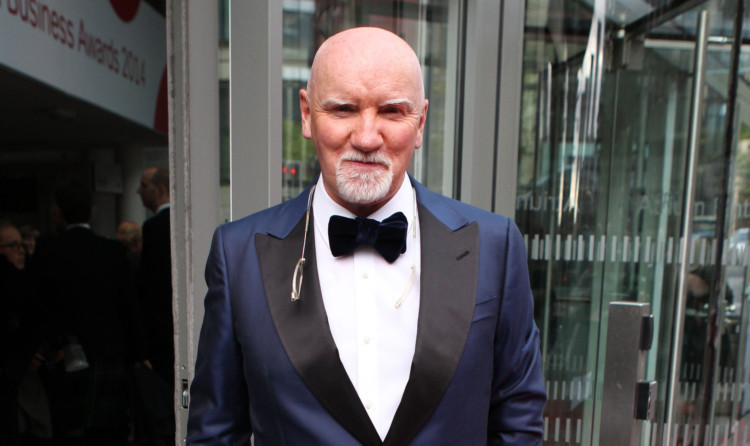
Nearly two-thirds of people have grown bored of the referendum debate, according to a new poll.
With just over two months to go until polling day, the study reveals voters are “sick and tired” of independence chatter.
The findings were described as a “terrible travesty” by Sir Tom Hunter, whose non-partisan Scotland September 18 foundation commissioned the TNS poll.
Entrepreneur Sir Tom, 53, said: “As we step one day closer to taking an irreversible decision over Scotland’s future 73% of voters find it hard to know who to believe that is a terrible travesty.
“The deluge of contradictory ‘evidence’, lack of knowledge combined with distrust in both governments’ forecasts leaves many at best confused and at worst sick and tired of the debate.
“This is an appalling state of affairs brought about by both sides of the debate and is an affront to our democracy. The future of our nation is rightly in the hands of our population but that population is being enveloped by a thick fog of obfuscation.
“I would call on both sides of the debate to step up their games, be honest with their predictions.”
The poll reveals people have “given up listening to the debate because both sides contradict each other”.
Around half of the people interviewed said they didn’t trust either the Scottish or Westminster government to tell them the truth.
The research also reinforces a seeming slump in Yes support. The split between Yes and No is now 41 to 59 in favour of No.
The wide-ranging poll also found 63% agreed with the statement “I’ve given up listening to the debate as both sides contradict each other”. Just 22% disagreed.
When asked whose predictions about the Scottish economy they trusted, 45% don’t trust either the Scottish or Westminster government, with 25% trusting the Scottish Government and 18% the UK Government, 56% of undecided voters trust neither government.
Some 51% of people now say that the Better Together campaign, dubbed Project Fear by its own people, is negative.
However, the Better Together tactics seem to be working. The latest figures show 32% of voters planning to vote Yes, while 46% will vote No a gap of 14%. Undecided sits at 22%.
Better Together campaign director Blair McDougall said: “This is yet another poll showing a strong majority for the campaign to keep Scotland in the UK.”
Sarah-Jane Walls, operations manager for Yes Scotland, said: “Support for Yes has increased since the last poll published by Sir Tom it is over 40%, and we are confident of moving above 50% in the referendum.”
The poll also asked people who they wanted to win the next Scottish election in 2016 with the SNP on 29%, Labour 28%, Conservatives 9% and the Lib Dems and UKIP tied on 4%.

Enjoy the convenience of having The Sunday Post delivered as a digital ePaper straight to your smartphone, tablet or computer.
Subscribe for only £5.49 a month and enjoy all the benefits of the printed paper as a digital replica.
Subscribe